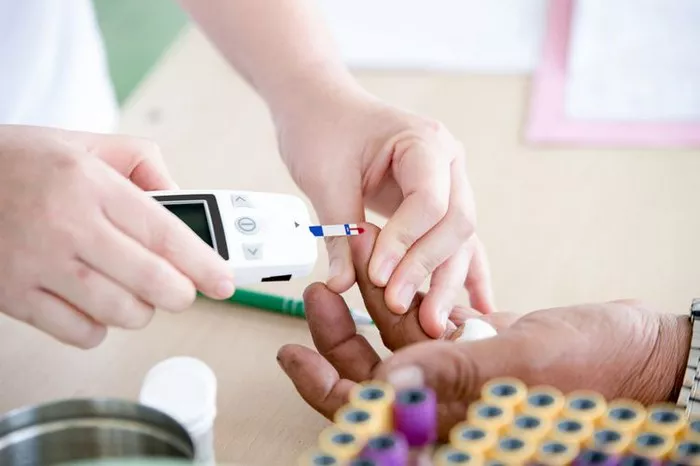Hyperglycemia, or high blood glucose levels, is a hallmark of diabetes mellitus and a significant health concern globally. It occurs when the body either doesn’t produce enough insulin or cannot effectively use the insulin it does produce, leading to elevated blood glucose levels. Chronic hyperglycemia can lead to severe complications, including cardiovascular disease, nerve damage, kidney failure, and retinal damage, emphasizing the importance of effective management.
Dietary Modifications
One of the primary strategies for managing hyperglycemia is through dietary modifications. The goal is to maintain blood glucose levels within the target range by adopting a balanced and nutritious diet.
Carbohydrate Counting: Carbohydrates have the most significant impact on blood glucose levels. Monitoring carbohydrate intake and distributing it evenly across meals can help prevent spikes in blood sugar. Using tools like carbohydrate counting, glycemic index, and glycemic load can aid in making informed food choices.
Choosing Complex Carbohydrates: Foods with a low glycemic index (GI) cause a slower, more gradual rise in blood glucose levels. Whole grains, legumes, vegetables, and fruits with low GI values are preferable to simple carbohydrates and processed foods.
Fiber-Rich Foods: Dietary fiber, especially soluble fiber, slows the absorption of glucose, helping to control blood sugar levels. Incorporating fiber-rich foods like whole grains, fruits, vegetables, and legumes into the diet is beneficial.
Balanced Meals: Combining carbohydrates with protein and healthy fats can slow the absorption of glucose. Eating balanced meals with appropriate portions of protein, fats, and carbohydrates can help stabilize blood sugar levels.
Portion Control: Monitoring portion sizes is crucial in managing blood glucose levels. Overeating, even healthy foods, can lead to hyperglycemia.
Regular Physical Activity
Exercise is a powerful tool in managing hyperglycemia. Physical activity helps lower blood sugar levels by increasing insulin sensitivity and facilitating glucose uptake by muscles.
Aerobic Exercise: Activities such as walking, jogging, swimming, and cycling improve cardiovascular health and aid in blood glucose regulation. Aim for at least 150 minutes of moderate-intensity aerobic exercise per week.
Resistance Training: Strength training exercises like weightlifting or using resistance bands increase muscle mass, which enhances glucose uptake and improves insulin sensitivity.
Consistency: Regular, consistent physical activity is more effective in managing blood sugar levels than sporadic, intense workouts. Incorporating physical activity into daily routines, such as taking the stairs or walking during breaks, can also be beneficial.
Medication and Insulin Therapy
For individuals with diabetes, medication and insulin therapy are often necessary to manage hyperglycemia. The type and dosage of medication depend on the individual’s specific needs, type of diabetes, and overall health.
Oral Medications: Several classes of oral medications help manage blood glucose levels, including metformin, sulfonylureas, meglitinides, DPP-4 inhibitors, and SGLT2 inhibitors. Each works differently, from increasing insulin production to reducing glucose absorption in the kidneys.
Insulin Therapy: Insulin is essential for individuals with type 1 diabetes and for many with type 2 diabetes when other medications are insufficient. Various forms of insulin (rapid-acting, short-acting, intermediate-acting, and long-acting) are used based on individual needs.
Injectable Medications: GLP-1 receptor agonists and amylin analogs are injectable medications that help lower blood glucose levels by mimicking hormones that regulate blood sugar.
Monitoring Blood Glucose Levels
Frequent monitoring of blood glucose levels is crucial in managing hyperglycemia. It provides immediate feedback on how diet, exercise, and medications affect blood sugar and helps in making timely adjustments.
Self-Monitoring of Blood Glucose (SMBG): Using a glucometer to check blood sugar levels several times a day helps individuals understand their blood glucose patterns and make informed decisions about their care.
Continuous Glucose Monitoring (CGM): CGM systems provide real-time glucose readings throughout the day and night, offering a comprehensive view of blood glucose trends and helping in proactive management.
A1C Testing: The A1C test measures average blood glucose levels over the past two to three months. Regular A1C testing helps in assessing long-term glucose control and making necessary adjustments to treatment plans.
Lifestyle Modifications
Several lifestyle modifications can help in managing hyperglycemia effectively:
Weight Management: Maintaining a healthy weight is crucial in managing blood glucose levels. Even a modest weight loss of 5-10% can significantly improve insulin sensitivity and blood sugar control.
Stress Management: Chronic stress can raise blood glucose levels by triggering the release of stress hormones. Techniques such as mindfulness, meditation, yoga, and deep breathing exercises can help in managing stress.
Adequate Sleep: Poor sleep can affect insulin sensitivity and blood sugar levels. Aim for 7-9 hours of quality sleep per night and maintain a regular sleep schedule.
Hydration: Staying well-hydrated helps in managing blood glucose levels. Water is the best choice, while sugary drinks should be avoided as they can cause spikes in blood sugar.
Education and Support
Education and support play a vital role in managing hyperglycemia. Understanding the condition, treatment options, and lifestyle changes is crucial for effective self-management.
Diabetes Education Programs: These programs provide comprehensive education on diabetes management, including diet, exercise, medication, and monitoring. Certified diabetes educators (CDEs) can offer personalized guidance and support.
Support Groups: Joining a support group can provide emotional support, practical advice, and motivation from others who understand the challenges of managing diabetes.
Healthcare Team: Regular consultations with a healthcare team, including endocrinologists, dietitians, and diabetes educators, ensure that the management plan is effective and up-to-date.
See also: How Much Sugar Causes Hyperglycemia?
Conclusion
Managing hyperglycemia is a multifaceted approach that involves dietary modifications, regular physical activity, medication and insulin therapy, monitoring blood glucose levels, and lifestyle changes. Education and support are also critical components in achieving effective blood glucose control. By adopting these strategies, individuals with hyperglycemia can lead healthier lives and reduce the risk of complications associated with high blood glucose levels.
Related topics:
How Does Stress Cause Hyperglycemia?



























